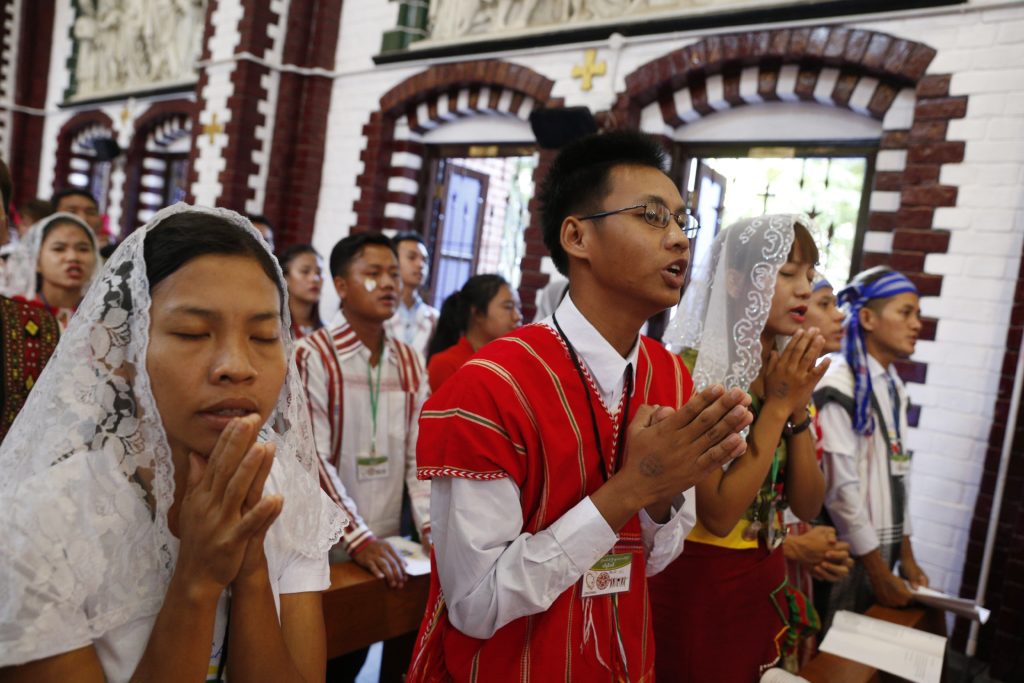The Federation of Asian Bishops' Conferences must restructure itself to make the church "relevant and responsive" to the people of Asia, a top-ranking cardinal said.
Cardinal Oswald Gracias of Mumbai, a member of Pope Francis' Council of Cardinals, stressed there was a great need to restructure the Asian bishops' federation and model it on the Latin American bishops' council, CELAM.
Ucanews.com reported that at the opening of FABC golden jubilee programs in Bangkok Oct. 12, the cardinal said suggestions for the restructuring of the FABC have the approval of top Vatican officials, including Pope Francis.
By the end of the two-week meeting Oct. 30, the bishops will have issued a final document, and "plans for a restructured FABC will also have been finalized, or at least a direction for them set," Cardinal Gracias said.
"I cannot stress how vital our role at this general conference is. We are undertaking to become and remain a prophetic, relevant, and responsive Asian church at the service of the people of Asia," he said.
"All participants at recent global ecclesial events will have noticed how bishops in South America have invariably been referring to Puebla, Medellin, and now Aparecida in their reflections," Cardinal Gracias said, referring to CELAM decennial conferences.
When he was cardinal of Buenos Aires, Argentina, Pope Francis was the main architect of the final document of Aparecida, which continues to influence him, Cardinal Gracias said.
"The question, therefore, arises: Isn't it time for the FABC to have something similar in Asia? What helped South America can surely help Asia," said the Indian cardinal, who heads the organizing committee of the jubilee program.
He said a restructured conference would help churches in Asia "renew and revitalize our pastoral thrust" and make it "a vibrant church working for a better Asia."
The call to restructure the FABC comes amid criticism that the federation has remained practically inactive for almost two decades. It began in the 1990s after the Vatican reportedly expressed doubts over the theological patterns developed by Asian theologians, who said they were trying to help the church's mission in Asia's interreligious situation.
Leading Asian theologians were investigated by the Vatican to see if they diluted the concept of "the uniqueness of Christ" and considered him as one of the gods in their attempt to develop a theology without rejecting the gods of Asian religions and their teachings.
CELAM went through a similar crisis in the 1960s when the Vatican condemned the liberation theology it supported. It regained the Vatican's approval only with some leadership changes but without compromising on its basic mission priority -- the preferential option for the poor.
Cardinal Gracias stressed the primary aim of the general conference, which he said was the first such organized by the FABC, is to create a system to help the Asian church to respond in an effective way to the region's social-political realities that affect the poor.
Cardinal Gracias said the idea was shared with Cardinal Luis Antonio Tagle, who headed the Congregation for the Evangelization of Peoples before the Roman Curia was reformed.
"Ideas got crystallized, and it was pointed out that we were going to meet" on the 50th anniversary of FABC, Cardinal Gracias said, explaining how the general conference became part of the golden jubilee programs.
Pope Francis has appointed Cardinal Tagle, the first Asian to head the Vatican congregation overseeing mission work across the world, as his representative to the general conference. Cardinal Tagle will formally conclude the general conference.

